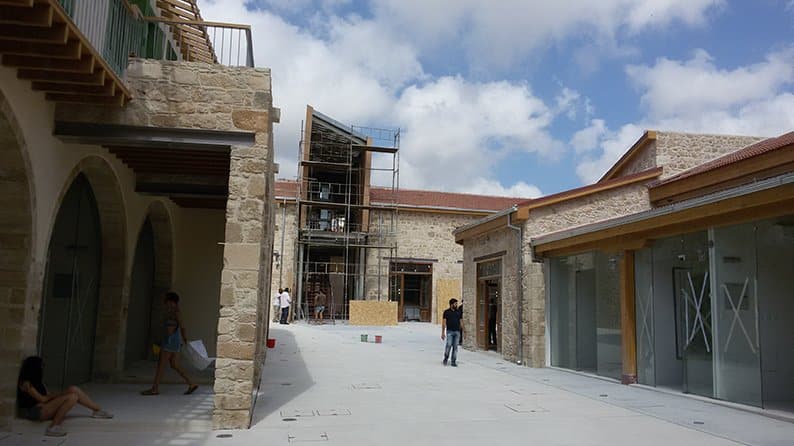Failing to stick to criteria in existing legislation has led to varying decisions being made on a case-by-case basis in usage of Turkish Cypriot properties, the audit office said on Thursday.
Speaking at a house audit committee session, the representatives from the auditor-general’s office and MPs examined the mismanagement of Turkish Cypriot property usage, and more specifically 19 commercial properties in Paphos.
According to the criteria, the audit office said that the beneficiaries must be refugees, not have a privately owned professional establishment, without significant property, while the composition of the family and the ages of the members are also considered.
The criteria also include any possession of property in the north.
The Committee examined the issue, after opposition Akel MP, Christos Christofides asked the audit office to investigate on the matter, following complaints that were also examined by the house refugee committee.
“There are significant financial interests hidden behind the concession,” he said, as some of the properties are in an advantageous position in Paphos.
The audit office said that in many cases the decision of the Turkish Cypriot property management special committee differed from the final decision of the Deputy Director of the Turkish Cypriot Property Management Service.
The office also said that the decisions were not accompanied by sufficient justification for the reasons for choosing A and not B candidate, as well as that there is no defined uniform way of calculating the rent, with the result that similar properties have a large difference in the amount of rent paid.
Three large commercial plots were also examined by the audit office, which said that in two cases the deputy director decided they should go to a different person than the individuals the special committee decided to ultimately give the properties to.
The third property was given to an individual suggested by a member of the special committee, following a decision by the deputy director.
Speaking at the session, the deputy director Yiorgos Matthaiopoulos, said that indeed the criteria are not prioritised and it is possible to derive different decisions for the same data.
On his part, the Mayor of Paphos, Phedon Phedonos, who participated as a member of the special committee, noted that in an investigation carried out by the municipality regarding the economic withering of the shopping centre of Paphos, it was found that one of the reasons was mismanagement of Turkish Cypriot properties.
He said that 70 per cent of the shops in the centre of Paphos are TC properties.
In the investigation it was found that 70 such shops that were allocated to beneficiaries remained closed.
He also alleged that some of them are owned by non-refugees, given either before 1974 or until the 80s with fake pre-dated contracts and called for an investigation to return them.
For the three properties inspected by audit office, the mayor said that in all three cases the deputy director overturned the special committee’s proposal: one case was given to a single parent, a guaranteed minimum wage recipient, who cannot repair it.
The second case was given to an applicant who owns two other Turkish Cypriot properties and comes from a rich family, while the third case concerns a student abroad, who is engaged to a relative of a former MP, Phedonos said.
He added: “The criteria are a joke, not by chance, so that people can do what they want, since whatever decision you make you can justify.”
He asked for an immediate change of the criteria with transparent procedures, while for the large properties a tender should be held.
He added that he has also filed complaints with the police for many cases of mismanagement of Turkish Cypriot properties.
Opposition Disy MP, Onoufrios Koulas, in his statements after the committee, said that specific bills have already been prepared for several months.
The bills, he said, are necessary to make the criteria and procedures by which the final decisions are made even clearer.
He also mentioned that there are scandalous concessions regarding the TC properties that were made in the decades 1970-1980 with complete opacity and without any clear criteria.
“And Disy was not a part of that feast that took place, because it was first elected to power in 1993 and we have no problem checking everything that is complained about from time to time,” he said.
Akel’s Christofides said that through the audit office report it is recorded that a feast of economic and political interests was set up around the concession of these important Turkish Cypriot commercial properties.
In an earlier report in daily Politis, the issue of the properties emerged, with the police saying they are currently looking to three civil servants that worked at the service that benefited from Turkish Cypriot residential properties.
One employee was found with 1.8 million square metres of Turkish Cypriot farmland and a home. The individual also managed to secure a Turkish Cypriot residence for his son and daughter.
Police are also investigating members of the special committees, who belong to political parties, and have properties.







Click here to change your cookie preferences